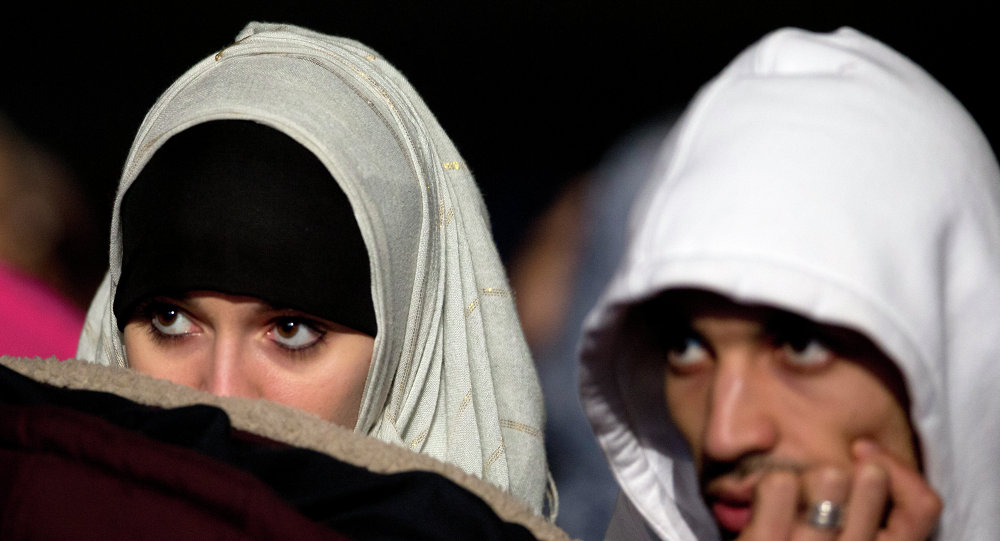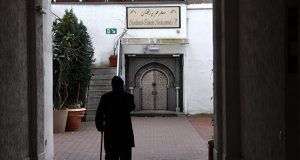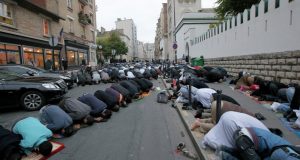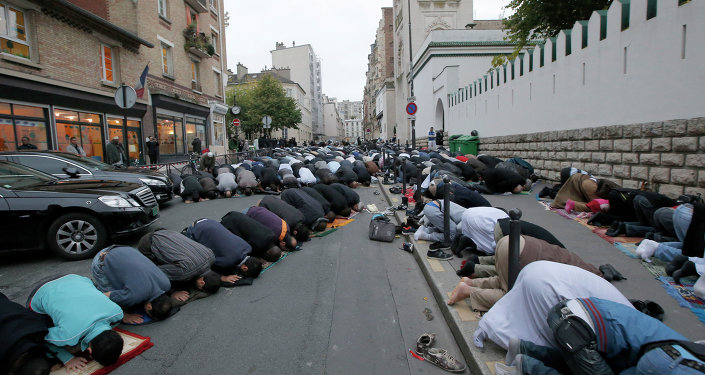A mosque in one of Paris’ northern suburbs, earlier shut down following a crackdown of religious extremists, has been allowed to reopen.
The Al Rawda mosque, located in Stains, an impoverished and multi-ethnic suburb north of the French capital, was closed in November 2016 because the authorities deemed it “a threat to security” after a group of jihadists prayed there in 2015 before leaving the country to join Daesh terrorists fighting in Syria and Iraq.
The Al Rawda mosque is one of the 30 Muslim prayer halls, which were ordered to remain closed until the end of the nationwide state of emergency.
The French Interior Ministry allowed the mosque to be reopened after the association, which runs it replaced its imam and promised to condemn “any messages of radical nature.”
”There was a group of jihadists who went there and who later left to fight in Syria. Why did they visit this particular mosque? There was an Imam there who I believe was a Salafist. He was fired, but, according to the police report, he prayed for the militants fighting in Syria,” Joachim Veliocas said.
He added that the mosque’s Egyptian chairman, Sali Atia Faroud, had become famous in Egypt when, during the so-called ”Arab Spring,” he said in televised remarks that Christians should not be allowed to serve as Cabinet Ministers.
Joachim Veliocas said that the people who negotiated the mosque’s reopening included Mohammed Hemmiche, the general secretary of the Union of Muslim Associations of Seine-Saint-Denis, who insists that Muslim women wear chadors.
“The Union says that Islamic laws are above the laws of the French Republic. They criticize the authorities who fine women for moving around in chadors. [Sali Atia Faroud] is an important man; his association is running about 30 mosques in Seine Saint-Denis, including the one in Steine. That’s why I think that keeping this mosque open is not the way to go,” Veliocas continued.
Didier Leschi, the author of the book ”The Misery of Islam in France,” disagrees.
He welcomes the decision to reopen the Al Rawda mosque as a sign of the Muslin community’s desire to deal with the problem of jihadism.
“I think that Muslim religious authorities underestimated the need to actively combat radical Islamist ideology. After the terrorist attacks and the authorities’ crackdown on certain mosques they changed their mind. I believe that the decision to reopen the mosque is good news. It reflects a mutual desire to address the problem and counter jihadist propaganda,” Didier Leschi said.
France remains under a state of emergency imposed after the November 2015 terrorist attacks in around and Paris, which left 130 people dead.
In July 2016, dozens of people were killed when a truck plowed through a celebratory Bastille Day crowd in Nice.
In December 2016, the French parliament voted to extend a national state of emergency until July 15, 2017, after the May 7 presidential election.
In the latest case of terrorist violence, one policeman was killed and two wounded in an apparent Daesh-inspired attack in Paris in April, just days before the first round of the French presidential election.



